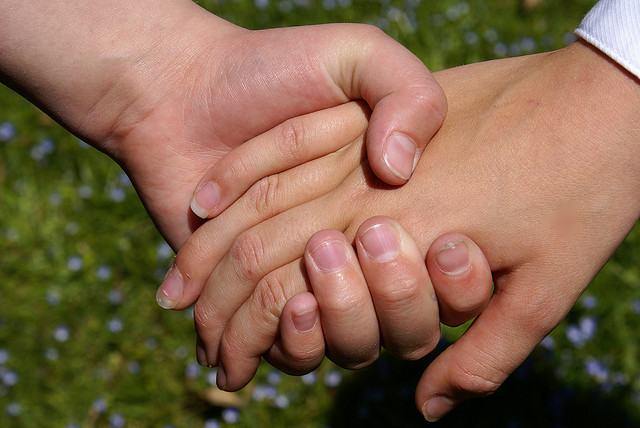Implementation of Community Health Worker-Mediated Services for Re-Engagement to Care and Outreach for Persons with HIV in Rural Communities (REACH: Rural Re-Engagement and Care using CHWs for Persons with HIV)
Persons with HIV (PWH) living in rural communities may have limited access to HIV care providers and may need to travel long distances to visit an experienced HIV care provider.
Additionally, Black and Hispanic/Latino PWH may experience structural barriers such as racism and lack of access to language translation services that may make it challenging to adhere to routine HIV care and treatment services.
These barriers can be exacerbated in rural communities.
In this demonstration project, recipients will be funded to collaborate with HIV care providers to identify PWH in rural communities who are not in care or have not achieved viral suppression and to implement a Community Health Worker (CHW)-mediated model of re-engagement to care and outreach services for PWH in rural communities.
Recipients will employ and train CHWs to facilitate re-engagement of PWH in care who are not in care and outreach to those who are not virally suppressed to provide services that may include ART delivery, sample collection for standard HIV laboratory testing, transfer of self-collected specimens, as well as provide transportation services, arranging and scheduling telehealth visits and/or in person visits with an HIV medical provider and other providers (mental health, primary care) and offer evidence-based medication adherence support.
Key outcomes in the project include an increased number of PWH in rural communities who are re-engaged to HIV care and treatment services for PWH not in care; provided outreach to those not virally suppressed to HIV; increased retention in care; increased ART (re)-initiation; increased adherence to ART; and increased viral suppression.In rural communities, PWH may face challenges in accessing consistent HIV care services.
In these rural communities, PWH may also experience health care provider shortages and have fewer providers with expertise in treating HIV.
Transportation challenges, where some patients have to travel long distances for care, may also exist.
Additionally, Black/African American (hereafter referred to as Black) and Hispanic/Latino communities are disproportionately affected by HIV compared with other racial/ethnic groups.
For example, in 2019, Black Americans represented 13% of the US population, but 40% of PWH; Hispanics/Latino people represented 1 8. 5% of the population, but 25% of PWH.
These disparities are especially seen in many of the priority EHE phase I rural states located in the South.
This demonstration project will focus on persons disproportionately affected by HIV including cis-gender Black men and women; gay, bisexual and other men who have sex with men (hereafter referred to as MSM); and transgender women.
Previous studies have shown community-based or home-based delivery of care is an effective approach to re-engage PWH back into HIV clinical care.
This strategy was studied primarily internationally with results showing that community-based delivery of ART significantly increased viral suppression.
However, in the US, this model, which may include home visits, has not been implemented as part of routine treatment and care services.Community health workers (CHW) are frontline public health workers who are trusted members of the community and have a uniquely close understanding of the community served.
This trusting relationship enables the CHW to serve as a liaison between health/social services and the community.
A CHW approach was assessed as part of the Ending the HIV Epidemic (EHE) pilot jumpstart initiative which found that CHWs were successful in East Baton Rouge, LA, by facilitating access to HIV treatment for priority populations.
Additionally, the use of CHWs has been successful and also cost-effective for certain chronic health conditions, particularly when working with low-income, underserved, and racial/ethnic minority communities to promote disease management in these vulnerable populations.
This demonstration project will provide quantitative and qualitative data on the effectiveness and implementation of a CHW home-based approach to facilitate re-engagement of in care and outreach to PWH.
The approach aims to improve viral load suppression among PWH living in rural communities, to benefit both individual health and reduce community-level HIV transmission.In this demonstration project, recipients (i.e.
Health Departments) will be funded to work with HIV clinical providers to develop a CHW-mediated approach to re-engagement to care for PWH not in care and outreach for PWH not virally suppressed in rural communities.
The services CHWs may provide include ART delivery, sample collection for standard HIV laboratory testing, transfer of self-collected specimens, transportation services, arranging and scheduling telehealth visits with the HIV medical providers and with other providers (mental health, primary care) and offering evidence-based medication adherence support.
All services will be culturally and linguistically responsive to the population served to minimize stigma, medical mistrust, and any perceived barriers that prevent persons from accessing care.
Additionally, Black and Hispanic/Latino PWH may experience structural barriers such as racism and lack of access to language translation services that may make it challenging to adhere to routine HIV care and treatment services.
These barriers can be exacerbated in rural communities.
In this demonstration project, recipients will be funded to collaborate with HIV care providers to identify PWH in rural communities who are not in care or have not achieved viral suppression and to implement a Community Health Worker (CHW)-mediated model of re-engagement to care and outreach services for PWH in rural communities.
Recipients will employ and train CHWs to facilitate re-engagement of PWH in care who are not in care and outreach to those who are not virally suppressed to provide services that may include ART delivery, sample collection for standard HIV laboratory testing, transfer of self-collected specimens, as well as provide transportation services, arranging and scheduling telehealth visits and/or in person visits with an HIV medical provider and other providers (mental health, primary care) and offer evidence-based medication adherence support.
Key outcomes in the project include an increased number of PWH in rural communities who are re-engaged to HIV care and treatment services for PWH not in care; provided outreach to those not virally suppressed to HIV; increased retention in care; increased ART (re)-initiation; increased adherence to ART; and increased viral suppression.In rural communities, PWH may face challenges in accessing consistent HIV care services.
In these rural communities, PWH may also experience health care provider shortages and have fewer providers with expertise in treating HIV.
Transportation challenges, where some patients have to travel long distances for care, may also exist.
Additionally, Black/African American (hereafter referred to as Black) and Hispanic/Latino communities are disproportionately affected by HIV compared with other racial/ethnic groups.
For example, in 2019, Black Americans represented 13% of the US population, but 40% of PWH; Hispanics/Latino people represented 1 8. 5% of the population, but 25% of PWH.
These disparities are especially seen in many of the priority EHE phase I rural states located in the South.
This demonstration project will focus on persons disproportionately affected by HIV including cis-gender Black men and women; gay, bisexual and other men who have sex with men (hereafter referred to as MSM); and transgender women.
Previous studies have shown community-based or home-based delivery of care is an effective approach to re-engage PWH back into HIV clinical care.
This strategy was studied primarily internationally with results showing that community-based delivery of ART significantly increased viral suppression.
However, in the US, this model, which may include home visits, has not been implemented as part of routine treatment and care services.Community health workers (CHW) are frontline public health workers who are trusted members of the community and have a uniquely close understanding of the community served.
This trusting relationship enables the CHW to serve as a liaison between health/social services and the community.
A CHW approach was assessed as part of the Ending the HIV Epidemic (EHE) pilot jumpstart initiative which found that CHWs were successful in East Baton Rouge, LA, by facilitating access to HIV treatment for priority populations.
Additionally, the use of CHWs has been successful and also cost-effective for certain chronic health conditions, particularly when working with low-income, underserved, and racial/ethnic minority communities to promote disease management in these vulnerable populations.
This demonstration project will provide quantitative and qualitative data on the effectiveness and implementation of a CHW home-based approach to facilitate re-engagement of in care and outreach to PWH.
The approach aims to improve viral load suppression among PWH living in rural communities, to benefit both individual health and reduce community-level HIV transmission.In this demonstration project, recipients (i.e.
Health Departments) will be funded to work with HIV clinical providers to develop a CHW-mediated approach to re-engagement to care for PWH not in care and outreach for PWH not virally suppressed in rural communities.
The services CHWs may provide include ART delivery, sample collection for standard HIV laboratory testing, transfer of self-collected specimens, transportation services, arranging and scheduling telehealth visits with the HIV medical providers and with other providers (mental health, primary care) and offering evidence-based medication adherence support.
All services will be culturally and linguistically responsive to the population served to minimize stigma, medical mistrust, and any perceived barriers that prevent persons from accessing care.
Related Programs
HIV Prevention Activities_Health Department Based
Department of Health and Human Services
Agency: Department of Health and Human Services
Office: Centers for Disease Control - NCHHSTP
Estimated Funding: $10,500,000
Office: Centers for Disease Control - NCHHSTP
Estimated Funding: $10,500,000
Obtain Full Opportunity Text:
Office of Postsecondary Education (OPE): Higher Education Programs (HEP): Student Service: Gaining Early Awareness and Readiness for Undergraduate Programs (GEAR UP) State Grants, Assistance Listing Number 84.334S; Notice Inviting Applications
Additional Information of Eligibility:
Per statutory authority Section 318(b-c) of the Public Health Service Act (42 USC § 247c(b-c)), as amended, and the Consolidated Appropriation Act of 2016 (Pub.
L.
114-113), eligible applicants include state, local and territorial health departments or their Bona Fide Agents in the 50 states, the District of Columbia, Puerto Rico, and the Virgin Islands.
Full Opportunity Web Address:
https://www.govinfo.gov/content/pkg/FR-2023-06-01/pdf/2023-11641.pdf
Contact:
Agency Email Description:
kai9@cdc.gov
Agency Email:
Date Posted:
2023-11-01
Application Due Date:
Archive Date:
2024-02-04
Social Entrepreneurship
Spotlight
The U.S. Government on Cultivating Impact Investing And Social Enterprise

According to a Private Capital, Public Good report recently released at the White House from a group of A-list impact investing and social enterprise specialists, the U.S. government can do a lot to spur the growth among the impact investing and social enterprise sectors.

